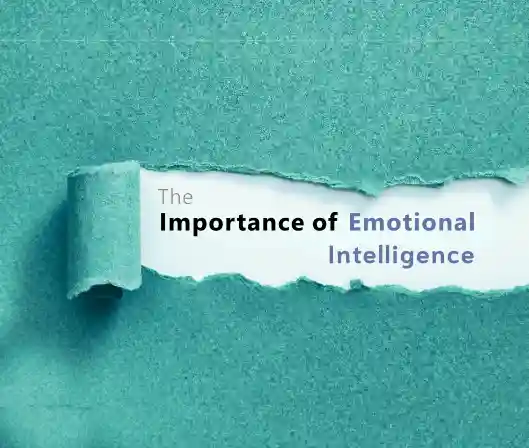

Emotional Intelligence (EI) is often described as the ability to understand, manage, and express emotions effectively. Unlike IQ, which measures cognitive abilities, EI reflects how well we navigate social complexities, build relationships, and regulate emotions . While many people associate EI primarily with empathy (the ability to understand and share the feelings of others) this is in fact just one aspect.
In today’s world, EI is becoming an essential skill, not only for personal relationships but also for mental health, physical well-being, and professional success. This article explores some of the lesser-known aspects of EI, its impact on our health and family dynamics, and why it may be the most crucial skill needed in our future.
Beyond Empathy: The Lesser-Known Skills of Emotionally Intelligent People
Empathy is an essential part of EI, but emotional intelligence is much broader. High EI involves several other key components, including emotional agility, resilience, and metacognition—all of which play a critical role in our mental and emotional well-being.
Emotional Agility: The Ability to Adapt to Change
Coined by psychologist Dr Susan David, emotional agility refers to our ability to navigate emotions effectively without being overwhelmed by them. People with high emotional agility don’t suppress difficult emotions, nor do they let them dictate their behaviour. Instead, they acknowledge their emotions, reflect on them, and choose how to respond.
Example: Consider a healthcare professional working in a high-stress environment. They may feel frustration when dealing with difficult patients, but instead of reacting impulsively, they pause, acknowledge their feelings, and choose a constructive response. This ability to regulate emotions prevents burnout and enhances patient care.
Resilience: Bouncing Back from Emotional Setbacks
Resilience —the ability to recover from emotional distress—is another crucial skill linked to EI. High EI individuals can process setbacks without becoming overwhelmed. They understand that emotions fluctuate and use coping strategies to regain stability.
Studies in Resilience:
There are several studies [28,29,31,32,33] suggesting the significance of resilience for various mental health symptoms. Some of note include The Association of Resilience with Mental Health in a Large Population-Based Sample .
High resilience among the elderly was discussed as an underlying factor for relatively stable well-being in the old age population [10,11,12]
During the COVID-19 pandemic, positive effects of resilience were shown. Lower resilience was found to be significantly associated with worse mental health outcomes during the crisis [7,8,9,10].
Metacognition: Thinking About How You Think and Feel
Metacognition is the ability to reflect on and regulate one’s own thought processes. Emotionally intelligent individuals are aware of their emotional triggers and biases . They can step back from a situation and assess whether their emotional response is helpful or exaggerated.
An interesting real-life example of metacognition from Improve with Metacognition
What pattern do you follow when you shop in the grocery store? Do you start with produce or end with produce? What else? How else might you systematically shop? And now the tough part: What criteria might favor each of the patterns? For example: Ending with heavy things such as dog-food might minimize your pushing effort but it might also risk crushing more delicate items… The bottom line is that for the things we do and the ways that we think, we should remember to ask, first, what are the alternatives and, second, what do we gain and lose by the ones that we choose.
From the outside, this might seem like overthinking for unimportant issues, and that can indeed be a risk. However it’s also valuable to interrogate embedded behaviours and thought patterns to see if there are different ways we can approach our daily lives.
How Emotional Intelligence Affects Physical Health (More Than You Think!)
Emotional intelligence doesn’t just impact our relationships—it significantly affects physical health. Studies show that poor emotional regulation can contribute to chronic illnesses such as heart disease, inflammation, and weakened immune function.
Stress and the Mind-Body Connection
Unmanaged stress leads to prolonged activation of the hypothalamic-pituitary-adrenal (HPA) axis, which controls the body’s stress response . Over time, this can result in:
- Increased cortisol levels (linked to anxiety and weight gain)
- Higher blood pressure (a risk factor for cardiovascular disease)
- Weakened immunity (making the body more vulnerable to illness)
Findings from the MIDUS II study relating to inflammation and emotion regulation explored ways in which ER may be linked to health outcomes is via the immune system.
The Role of Emotional Awareness in Pain Management
Pain perception is influenced by emotional regulation. Research shows that people with high EI are better at managing chronic pain conditions, as they use cognitive reframing techniques to reduce distress.
Patients with fibromyalgia who underwent EI-based cognitive therapy reported significant reductions in pain intensity and greater overall well-being compared to those receiving standard treatment.
The Role of Emotional Intelligence in Breaking Intergenerational Trauma Cycles
Trauma—especially when unresolved—can be passed down through generations. Families with a history of emotional suppression, neglect, or conflict often unknowingly continue these patterns. Developing emotional intelligence can help break these cycles by fostering self-awareness, emotional regulation, and healthier communication.
Psychologists refer to the intergenerational transmission of trauma, where emotional patterns, beliefs, and coping mechanisms are unconsciously passed down. A lack of EI can perpetuate:
- Emotional suppression (children learn to hide their feelings)
- Reactive communication (conflict escalates rather than resolves)
- Attachment difficulties (struggles with trust and emotional intimacy)

How EI Can Interrupt These Cycles
- Self-awareness: Recognising inherited emotional patterns
- Emotional regulation: Learning healthier coping mechanisms
- Communication skills: Expressing emotions constructively instead of repressing them
Example: A parent raised in a home where emotions were dismissed might struggle to comfort their child’s distress. By developing EI, they can validate their child’s emotions, model healthy emotional regulation, and create a more emotionally supportive environment.
The Future of Emotional Intelligence: Why It Might Be More Important Than IQ in the AI Era
As artificial intelligence (AI) and automation reshape industries, technical skills are becoming less of a differentiator. What sets humans apart is the ability to navigate complex social interactions—making EI one of the most valuable skills for the future.
The Shift from IQ to EI in Leadership and Workplaces
According to the World Economic Forum, EI is part of many of the
top skills for the future workforce. Companies are increasingly prioritising:
- Adaptability: Employees who can manage change and uncertainty
- Interpersonal skills: The ability to collaborate and resolve conflicts
- Self-awareness: Leaders who understand their impact on others
And demand for EI is Growing: By 2030, demand for social and emotional skills is projected to rise by 26% in the U.S. and 22% in Europe.
Why EI is Essential in an AI-Driven World
AI excels at data analysis, automation, and pattern recognition, but it lacks human emotional intelligence. The future workplace will require professionals who can:
- Navigate complex social dynamics
- Provide empathy and emotional support (especially in healthcare and counselling)
- Mediate interpersonal conflicts and ethical dilemmasConsider that a doctor using AI-driven diagnostic tools still needs high EI to connect with patients, build trust, and interpret emotional cues that a machine cannot. Especially considering current research indicates that employees with higher EI will more likely deliver a better quality of patient care.
Emotional Intelligence is far more than just empathy—it encompasses skills like emotional agility, resilience, and metacognition, all of which shape mental and physical health. Beyond personal well-being, EI plays a critical role in breaking intergenerational trauma patterns and is now recognised as a key driver of professional success in an AI-dominated world.
As we move forward, investing in emotional self-awareness, adaptability, and communication skills will not only improve individual lives but also shape healthier societies. Whether in psychiatry, leadership, or everyday relationships, EI may well be the most important skill of the 21st century.



